New findings: Why emotions are the missing piece in change
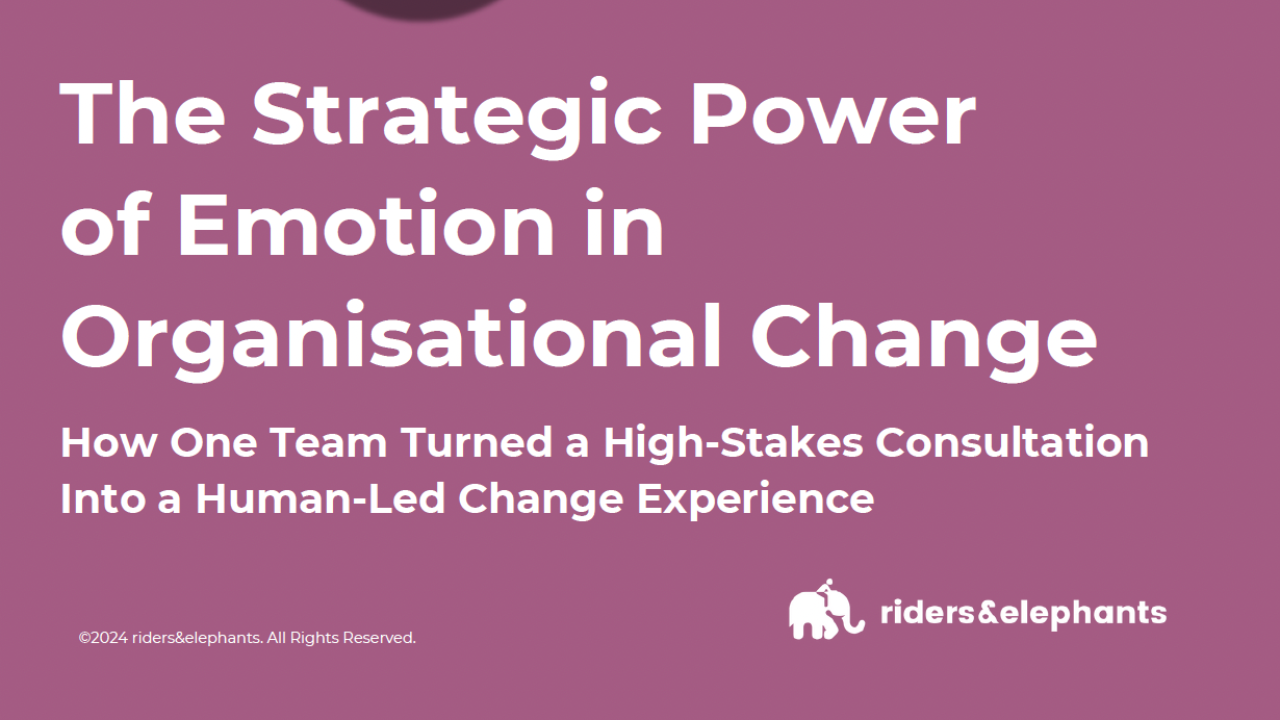
Most change programmes focus on strategy, process, and communication.
They forget the one thing that determines whether change actually sticks: how people feel.
In 2024, we ran a pilot programme with one team inside a New Zealand government agency — and partnered with Professor Michael Parke from Wharton Business School to measure what happened when you put emotions at the centre of a change programme.
The context
The agency was going through a high-stakes consultation affecting thousands of employees. The kind of change that typically triggers anxiety, disengagement, and burnout.
Instead of following a traditional change playbook, one leadership team tried something different. They used our Emotional Change Programme to help their people name how they were feeling, have honest conversations, and design emotionally intelligent ways of working through the uncertainty together.
What we measured
Working with Professor Parke, we tracked employee engagement, emotional awareness, lead...
The F-World 2025 Edition — It’s Finally Here
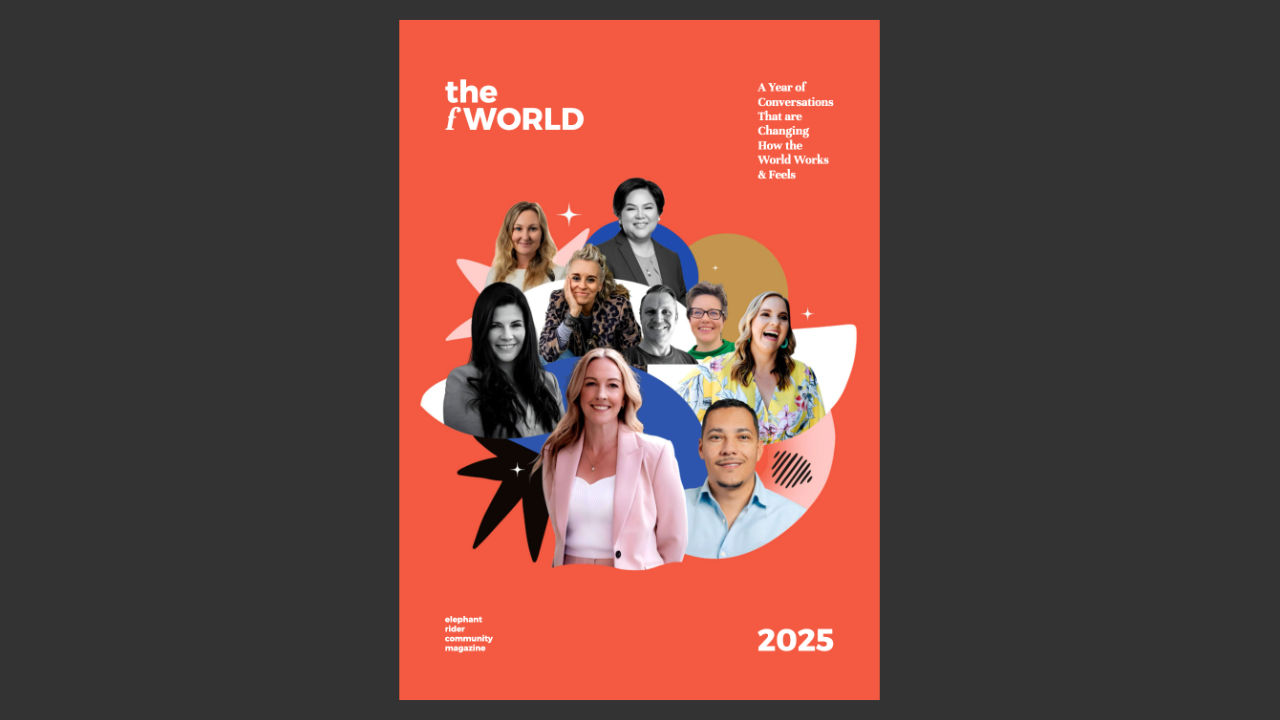
We're really proud to finally share the F-World 2025 Edition.
A year’s worth of emotional culture conversations across 49 countries, experiments, courage, learning, doubt, progress, and care. Across different countries, industries, organisations, and rooms. All sitting alongside each other.
→ Click here to read full screen version on your phone or desktop: https://ecdeck.com/fworld-2025
There are so many more stories we could have included. If we tried to fit everything our community shared in 2025, this would easily be a 500-page document. Choosing what to include was hard — not because there wasn’t enough, but because there was so much.
This edition captures what 2025 actually felt like!
People trying things for the first time. Major shifts across teams, organisations, and whole businesses. Emotions being named that had been sitting under the surface for a long time. Leaders creating space to really listen. Small rituals that quietly changed how work felt day to day. And works...
Emotion Science Simplified: Feedback with feelings

Feedback isn’t just information. It’s emotional work.
The core idea
We often talk about feedback as if it’s rational, neutral, and technical. This research shows that’s a myth.
Feedback is saturated with feeling. Not just how feedback is received, but how it is given, judged, remembered, and acted on. Emotions aren’t background noise. They're doing the work.
What the researchers studied
The authors observed real feedback moments in high-pressure medical settings (ICU and surgery). They watched. They listened. They traced what feelings did over time.
Not just what people said but:
-
body language
-
tone
-
silences
-
what lingered
-
what people avoided later
This is called focused ethnography, grounded in modern emotion theory.
What they found (the big insights)
1. Judgement and emotion are inseparable
Performance judgements are felt, no...
Celebrating Seven New ECD Certified Consultants
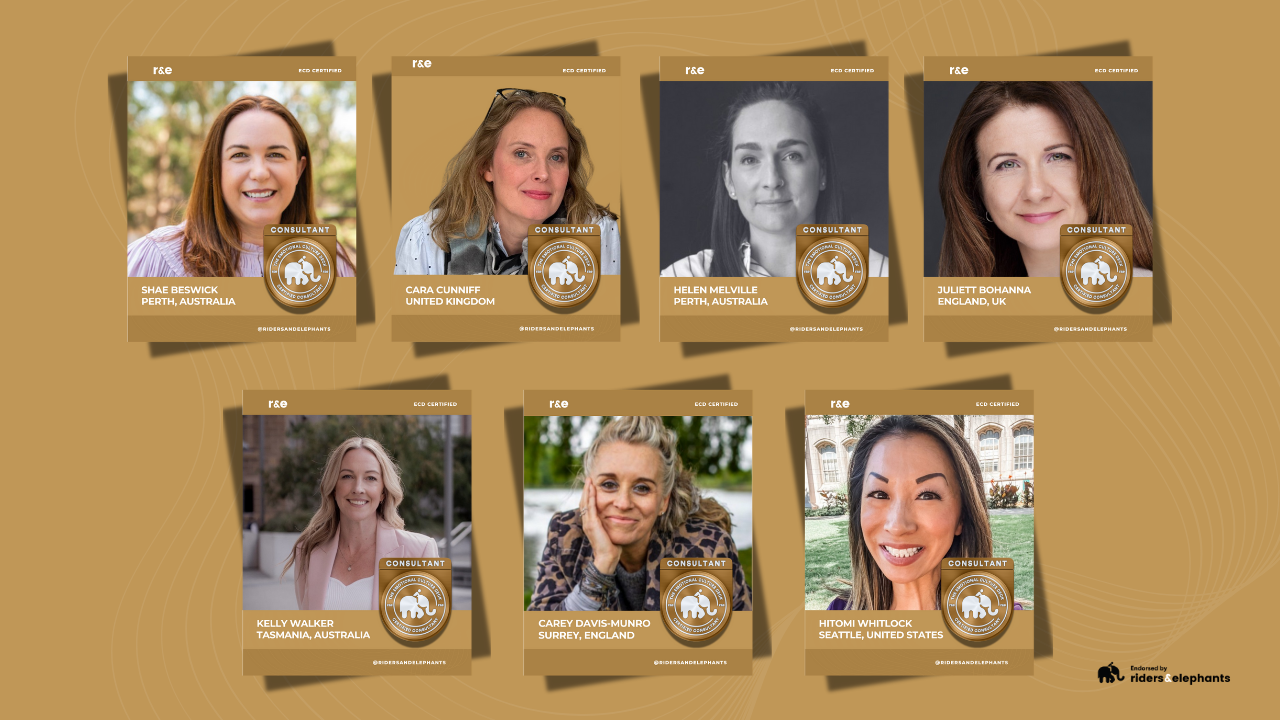
A year-long journey of courage, practice, emotions & growth.
Today we celebrate seven remarkable human-centred leaders who have completed the 12-month Emotional Culture Deck Certified Consultant Development Programme:
- Shae Beswick — Perth, Australia
- Juliett Bohanna — England, UK
- Cara Cunniff — United Kingdom
- Carey Davis-Munro — Surrey, England
- Helen Melville — Perth, Australia
- Kelly Walker — Tasmania, Australia
- Hitomi Whitlock — Seattle, United States
Each of them brought something unique. Each of them stretched themselves.
Each of them leaves with a deeper, deeper understanding of how emotional culture shapes performance, leadership and human connection.
Here are some of the insights from their journey, in their own words.
1. The Lessons That Changed Them
Shae Beswick – “Emotions are not the soft stuff. They’re a strategic driver of culture, performance and behaviour.”
Cara Cunniff – “Once people have language for their emotional world, clarity, honesty an...
Measuring What Matters: Inside Sanitarium’s Emotional Culture Reset
Last week, inside our Elephant Rider Community, we hosted an inspiring Elephant Rider Showcase featuring Chelsea Lang (Certified Consultant in Training) and Danii Garrett (Emotional Culture Practitioner).
In this brave and deeply human conversation, Chelsea and Danii walked us through the Reset & Elevate programme they designed, delivered, and refined over the past year — a bold emotional culture transformation at Sanitarium that has achieved extraordinary outcomes.
They shared how they brought The Emotional Culture Deck to life at scale, from designing the programme to rolling it out across teams, navigating challenges, and learning from every step along the way.
What unfolded is a story of courage, data, and deep human connection. One that shows how The Emotional Culture Deck can turn conversation into measurable change.
It was timely reminder that when culture work gets hard, it’s often because we’ve forgotten one simple truth: every transformation begins with emotion.
That’s ...
Letting the ECD crack open a tough audience by Sherril Harris
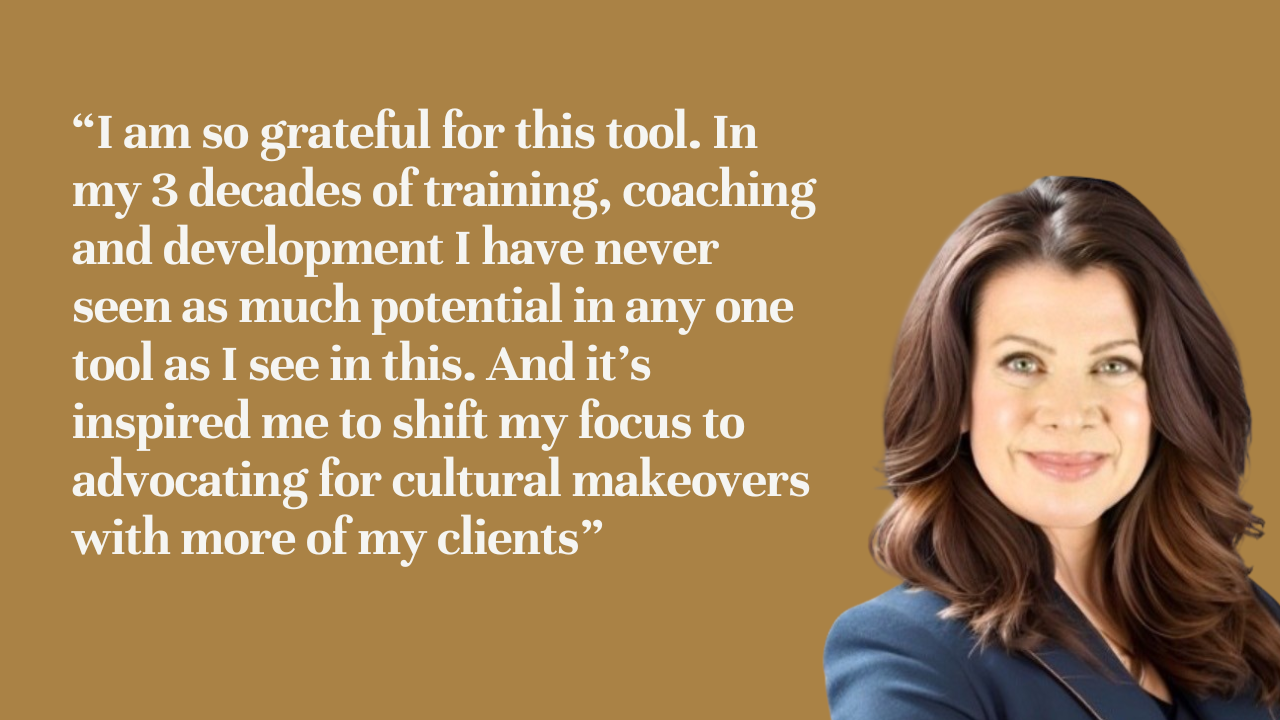
I was delighted to take my maiden voyage with the deck on July 9th. The audience was a group of facilitators for an auto manufacturer that has been struggling with gender and generational bias. Their leadership affectionately described them to me as an “Old Boys Club full of cranky old white dudes (and one unbelievably forgiving woman) who think they know everything and don’t know when they are being #$sholes.” I had 3.5 hours to help them develop their emotional intelligence around anyone not white, male and over 60. I kicked the conversation off with the ECD.
My ice breaker was the familiar, “When you think about the last 48 hours what 5-6 emotions most accurately describe how you are feeling?” No surprise, the woman was able to make her selections in about 5 minutes, most of the men found their way to the 10 minute mark, and 2 struggled all the way to the finish line at about 15 minutes. Befo
...Celebrating Katherine Riddoch – Our Newest Expert ECD Leadership Consultant
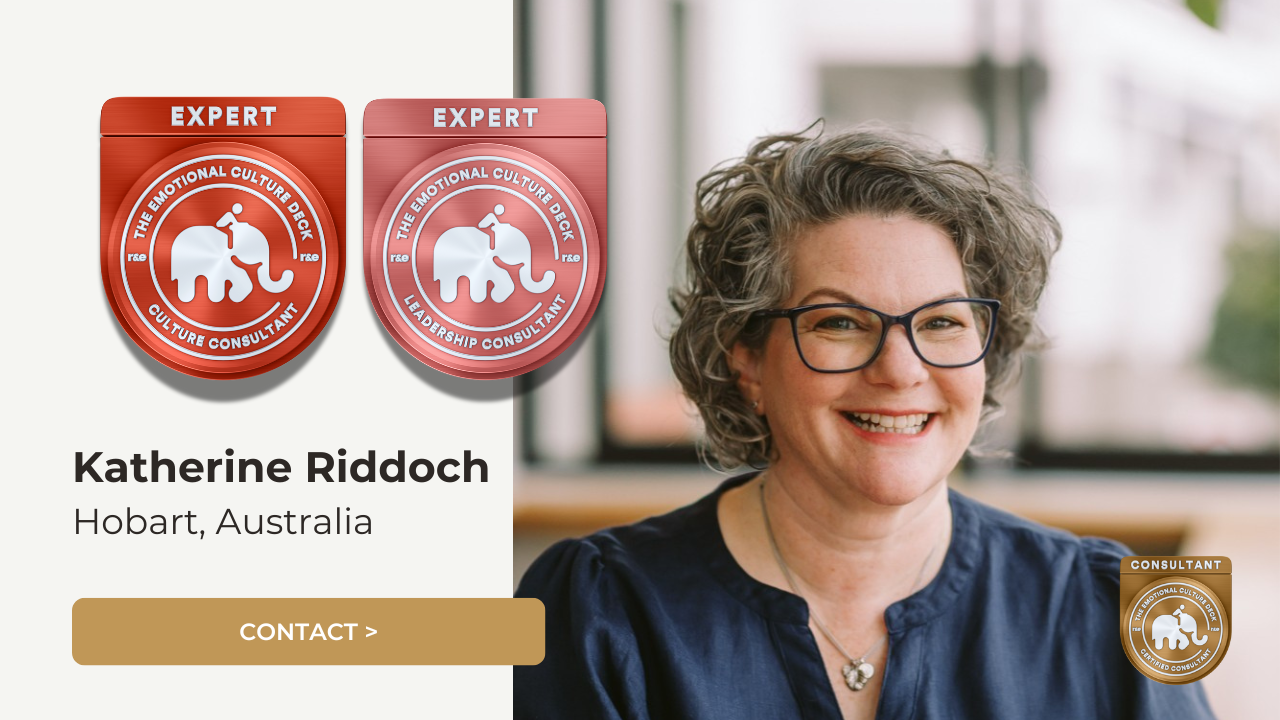
Congratulations to Katherine Riddoch for becoming an official Expert ECD Leadership Consultant!
Reaching this latest milestone on your ECD Certified Pathway is no small feat, full of lessons and impact that ripple so much further than the leaders and teams you serve.
Katherine’s work with leaders is the kind of facilitation that shifts people into better conversations, and into new levels of awareness - emotional and rational! She’s using The Emotional Culture Deck as a lens for emotional insight, behavioural change, and culture-shaping leadership that inspires so many of us to do more than we thought was possible.
Here are just a few gems from her recent reflections as she unlocked her latest ECD Certified Pathway badge:
- “I’ve shifted from facilitating the tool to facilitating awareness.”
- “Emotional leadership starts with awareness, not action.”
- “The quality of reflection determines the quality of insight.”
In one standout moment, she shared the story of a leadership participant ...
Huge congratulations to Kate Bacchus – our newest Pro ECD Leadership Consultant!
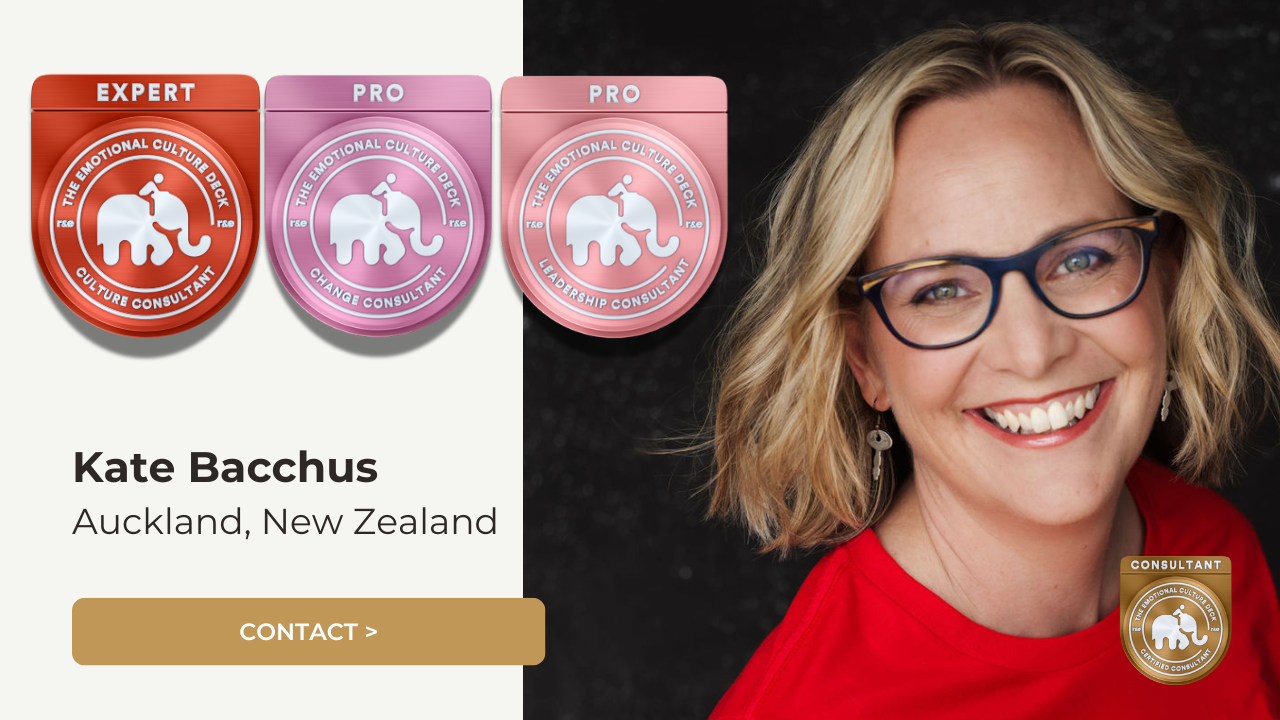
Over the past few months, Kate has quietly but powerfully led 12+ ECD Leadership Workshops across New Zealand, working with emerging leaders, senior management teams, and cross-functional leadership groups to help them lead themselves and others with more intention, empathy, and emotional literacy.
In her own words, she’s grown from “scripted and second-guessing” to confidently leading unscripted, emotionally rich leadership conversations using The Emotional Culture Decj.
“My role is to create the space and ask the questions.”
Whether she’s guiding a 1:1 or a full-room workshop, she’s creating space for people to pause, reflect, and find clarity and gently humanising the workplace one session at a time.
We feel proud & inspired by the way Kate is applying The ECD to shape emotional leadership conversations, and culture & change programmes.
It’s such a joy to watch and learn from her as she goes from strength to strength! Thank you Kate for everything you’re contributing to our...
Emotion Science Simplified: Why Timing Matters in Leadership Emotions

Welcome to Emotions Science Simplified! This month, we’re looking at how the timing of emotional expression from leaders influences team performance.
Research Spotlight: Timing Is Everything: An Imprinting Framework for the Implications of Leader Emotional Expressions for Team Member Social Worth and Performance by Jacob S. Levitt,a,* Constantinos G. V. Coutifaris,b Paul I. Green, Jr.,b Sigal G. Barsadea,†
The big idea:
Early emotional expressions (especially positive ones) shape how respected, safe, and motivated people feel.
Emotional Expression Timing
What if the emotions leaders express early in a team’s journey could shape performance outcomes months down the track? New research suggests that not only do leader emotions influence team members’ motivation and success, but the timing of those emotions plays a crucial role in shaping respect, status, and performance.
A new study by Levitt, Coutifaris, Green, and Barsade (2024) explores how leaders' emotional expressions creat...
A Measurable Cultural Shift When Two Teams Become One
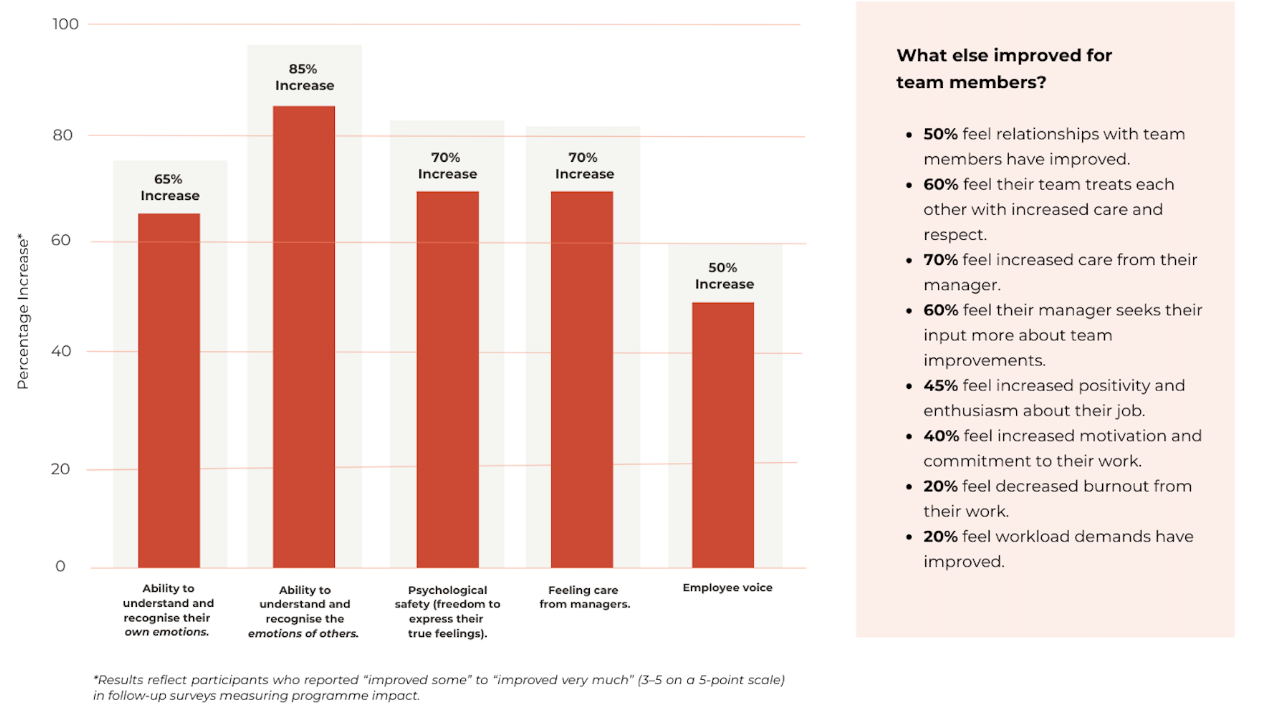
When Sanitarium opened its new state-of-the-art national distribution centre they faced more than just an operational shift. Two distinct teams were coming together for the first time with different habits, relationships, and expectations.
They saw a unique opportunity: not just to manage the transition, but to reset how the team connects, communicates, and leads.
So they launched Reset & Elevate. A bold, human-centred culture programme designed by Chelsea Lang and Dani Garrett, Elephant Riders inside Sanitarium. Their goal: bring people together, rebuild trust, and lay the foundation for a team culture where everyone feels respected, supported, and proud to belong.
The results were extraordinary.

The Emotional & Cultural Shifts
Chelsea and Danii embedded The Emotional Culture Deck into the programme helping leaders and team members have more honest conversations, build emotional literacy, and set a clear tone for how the team wants to work together.
Over the course of the prog...

